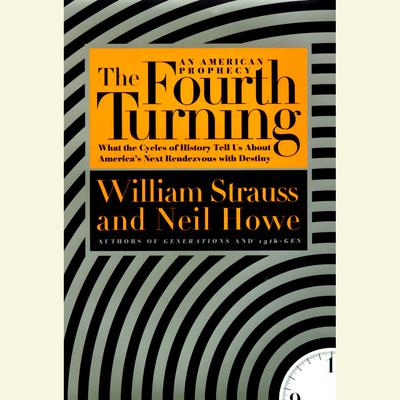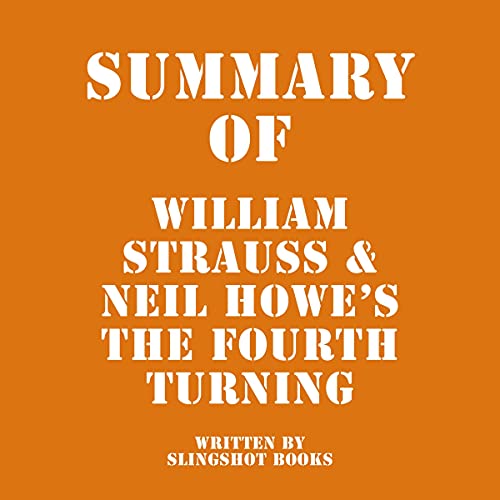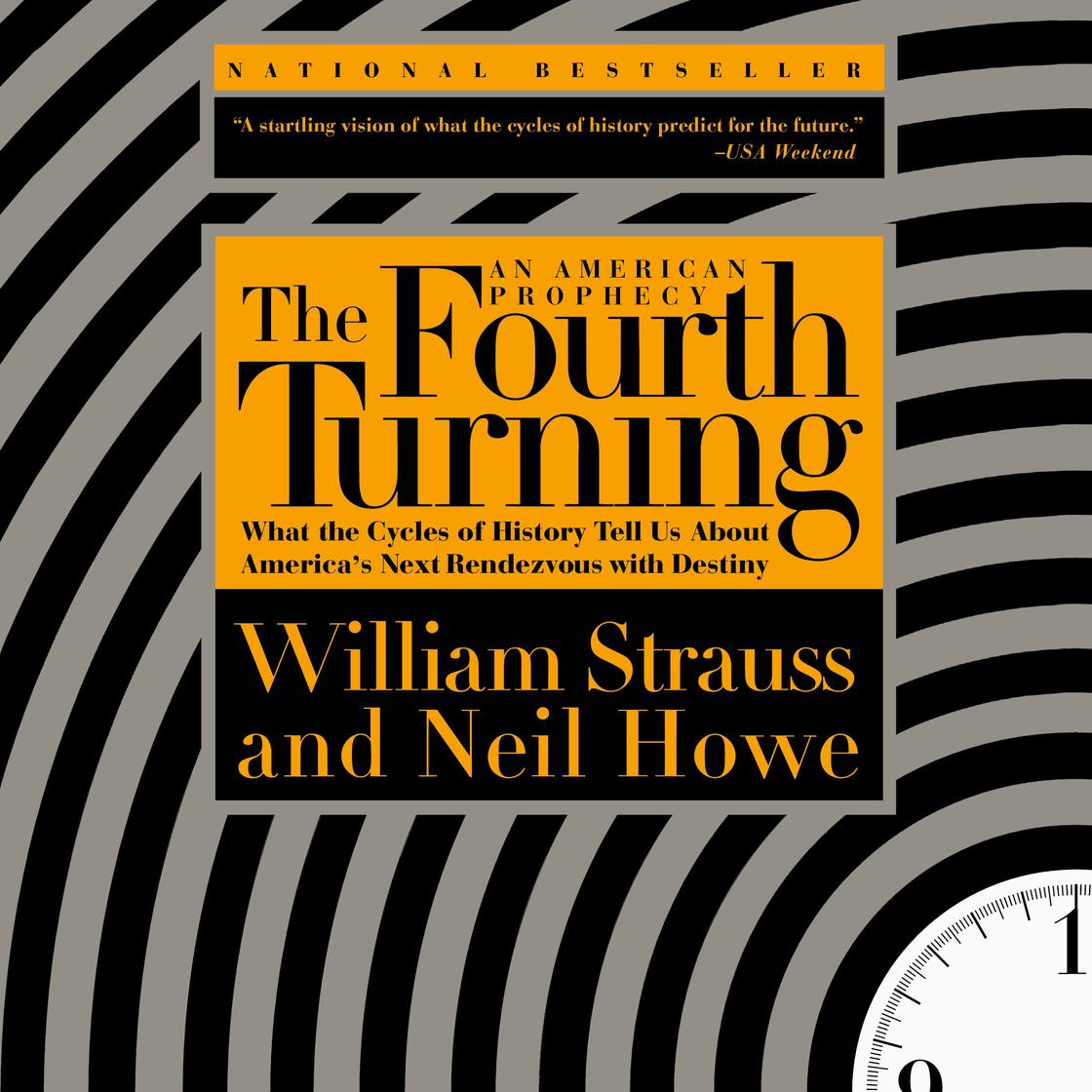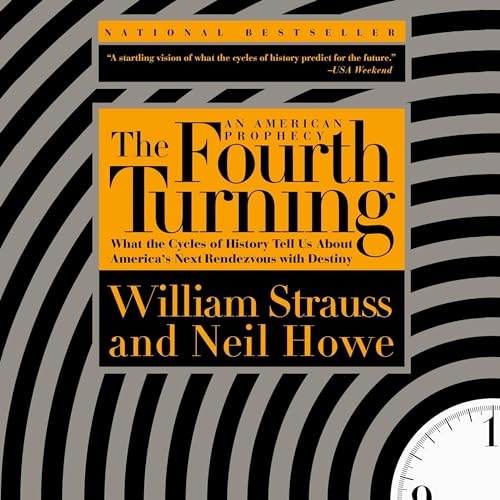William Strauss’s “The Fourth Turning” audiobook explores generational cycles and their impact on history. It predicts societal changes and crises.
William Strauss, along with Neil Howe, delves into the cyclical nature of history in “The Fourth Turning. ” The authors argue that history moves in cycles, each lasting roughly 80-100 years, divided into four turnings. Each turning represents a different phase in societal evolution: High, Awakening, Unraveling, and Crisis.
The audiobook suggests that understanding these cycles helps predict future events and prepare for societal transformations. It provides a compelling framework for interpreting historical patterns and anticipating future challenges. This thought-provoking analysis encourages readers to reflect on their role in shaping the future during these transformative periods.

Credit: audiobookstore.com
The Essence Of ‘the Fourth Turning’
William Strauss’s audiobook, ‘The Fourth Turning’, delves into cycles of history. It suggests that history is cyclical, marked by four distinct periods. These periods, or “turnings,” repeat every 80-100 years. Each turning brings its own set of challenges and changes. The audiobook provides insights into understanding these cycles.
Key Concepts Introduced
The audiobook introduces several key concepts:
- Turnings: Four periods that repeat in a cycle.
- Generations: Groups of people born in the same era, experiencing the same events.
- Archetypes: Distinct types of generations, each with unique traits.
Each turning lasts about 20-25 years. The four turnings are:
- High: A period of strong institutions and weak individualism.
- Awakening: A time of spiritual upheaval and questioning institutions.
- Unraveling: Institutions are weak, and individualism is strong.
- Crisis: A time of major upheaval and rebuilding of institutions.
Historical Patterns And Predictions
Strauss identifies historical patterns through these cycles. Each turning influences the social, political, and economic landscape.
For example, the American Revolution was a “Crisis” turning. The following “High” was the establishment of a strong new government. The 1960s “Awakening” brought cultural revolutions and changes.
The audiobook predicts future trends based on these cycles. It suggests that understanding these patterns helps in preparing for future events. By recognizing these cycles, we can navigate challenges better.
Strauss’s work is a valuable tool for anyone interested in history and future trends. It provides a framework for understanding societal changes. This makes it a must-listen for those seeking deeper insights.

Credit: www.audible.com
Impact On Society And Culture
William Strauss’s audiobook, The Fourth Turning, has left a lasting mark on society and culture. It explores cyclical patterns in history, shaping the way we view the world today. Let’s dive into its influence on political thought and reflections in modern societies.
Influence On Political Thought
The Fourth Turning has shaped many political ideas. Politicians use its theories to predict future events. They believe history follows cycles, impacting their strategies.
Some leaders see patterns in current events. They use the audiobook to plan political moves. This affects global politics and decision-making.
The book suggests four cycles, or turnings. Each turning lasts about 20 years. Leaders use these cycles to predict changes in society.
Reflections In Modern Societies
Modern societies reflect ideas from The Fourth Turning. People see repeating patterns in history. They use this to understand current events.
The book’s concepts appear in many areas. These include education, media, and economics. Society uses these ideas to navigate challenges.
Families also see patterns in their lives. They use the audiobook to plan for the future. This impacts their daily decisions and long-term goals.
The Fourth Turning encourages people to learn from the past. It helps them prepare for future events. This is valuable for personal growth and community planning.
Navigating The Current Turning
In “The Fourth Turning” by William Strauss, the concept of turnings helps us understand historical cycles. We are currently navigating the Fourth Turning, a time of crisis and transformation. This phase can be challenging but offers opportunities for change and growth.
Strategies For Individuals And Communities
Individuals should focus on resilience and adaptability. Here are some key strategies:
- Build strong relationships: Trust and cooperation are essential.
- Learn new skills: Being versatile helps in uncertain times.
- Stay informed: Knowledge is power in a crisis.
Communities must work together to navigate this period. Consider the following:
- Foster unity: Community strength lies in solidarity.
- Support local businesses: Economic stability starts at home.
- Engage in civic activities: Active participation strengthens democracy.
Preparing For Future Turnings
Understanding that turnings are cyclical can help us prepare. Here are some steps to take:
- Study history: Learn from past turnings to anticipate future ones.
- Plan long-term: Think about the next 20-30 years.
- Invest in education: An educated populace adapts better.
In conclusion, “The Fourth Turning” offers valuable insights into navigating turbulent times. By focusing on individual and community resilience, and preparing for future cycles, we can turn challenges into opportunities.

Credit: libro.fm
Conclusion
The “William Strauss – The Fourth Turning Audiobook” offers deep insights into generational cycles. It’s essential for understanding societal changes. This audiobook provides valuable perspectives for navigating future challenges. Embrace this knowledge to better prepare for what’s ahead. Listen to it today and gain a new outlook on our collective future.



